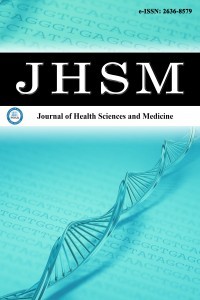1.
NCD risk factor collaboration (NCD-RisC). Worldwide trends in hypertension prevalence and progress in treatment and control from 1990 to 2019: a pooled analysis of 1201 population-representative studies with 104 million participants. Lancet. 2021;398(10304):957-980. doi:10.1016/S0140-6736(21)01330-1
2.
Di Cesare M, Perel P, Taylor S, et al. The heart of the World. Glob Heart. 2024;19(1):11. doi:10.5334/gh.1288
3.
Gu J, Zhang XJ, Wang TH, Zhang Y, Chen Q. Hypertension knowledge, awareness, and self-management behaviors affect hypertension control: a community-based study in Xuhui District, Shanghai, China. Cardiology. 2014;127(2):96-104. doi:10.1159/000355576
4.
Hamrahian SM, Falkner B. Approach to hypertension in adolescents and young adults. Curr Cardiol Rep. 2022;24(2):131-140. doi:10.1007/s11886-021-01632-x
5.
Adediran E, Owens R, Gardner E, et al. Risk factors of undiagnosed and uncontrolled hypertension in primary care patients with hypertension: a cross-sectional study. BMC Prim Care. 2024;25(1):311. doi:10.1186/s12875- 024-02511-4
6.
Magnani JW, Mujahid MS, Aronow HD, et al. Health literacy and cardiovascular disease: fundamental relevance to primary and secondary prevention: a scientific statement from the American Heart Association. Circulation. 2018;138(2):e48-e74. doi:10.1161/CIR.0000000 000000579
7.
Hu Z, Wang X, Zheng C, et al. Association between the improvement of knowledge, attitude and practice of hypertension prevention and blood pressure control-a cluster randomized controlled study. Am J Health Promot. 2024;38(7):980-991. doi:10.1177/08901171241237016
8.
Luo D, Cheng Y, Zhang H, et al. Association between high blood pressure and long term cardiovascular events in young adults: systematic review and meta-analysis. BMJ. 2020;370:m3222. doi:10.1136/bmj.m3222
9.
Zhang Y, Moran AE. Trends in the prevalence, awareness, treatment, and control of hypertension among young adults in the United States, 1999 to 2014. Hypertension. 2017;70(4):736-742. doi:10.1161/HYPERTENSIONAHA.117.09801
10.
Kaper MS, Reijneveld SA, van Es FD, et al. Effectiveness of a comprehensive health literacy consultation skills training for undergraduate medical students: a randomized controlled trial. Int J Environ Res Public Health. 2019;17(1):81. doi:10.3390/ijerph17010081
11.
Yang SC, Luo YF, Chiang CH. The Associations among individual factors, ehealth literacy, and health-promoting lifestyles among college students. J Med Internet Res. 2017;19(1):e15. doi:10.2196/jmir.5964
12.
Tan J, Yoshida Y, Ma KS, Mauvais-Jarvis F, Lee CC. Gender differences in health protective behaviours and its implications for COVID-19 pandemic in Taiwan: a population-based study. BMC Public Health. 2022;22(1):1900. doi:10.1186/s12889-022-14288-1
13.
Filippou CD, Tsioufis CP, Thomopoulos CG, et al. Dietary approaches to stop hypertension (DASH) diet and blood pressure reduction in adults with and without hypertension: a systematic review and meta-analysis of randomized controlled trials. Adv Nutr. 2020;11(5):1150-1160. doi:10. 1093/advances/nmaa041
14.
Sogari G, Velez-Argumedo C, Gómez MI, Mora C. College students and eating habits: a study using an ecological model for healthy behavior. Nutrients. 2018;10(12):1823. doi:10.3390/nu10121823
15.
Wu J, Chen D, Li C, Wang Y. Agreement between self-reported and objectively measured hypertension diagnosis and control: evidence from a nationally representative sample of community-dwelling middle-aged and older adults in China. Arch Public Health. 2024;82(1):245. doi:10. 1186/s13690-024-01456-5
16.
Rezaianzadeh A, Jafari F, Ghoddusi Johari M, Karami H. Awareness, treatment, and control of hypertension among 10663 adults based on the baseline data of the Kherameh cohort study. J Tehran Heart Cent. 2023;18(2):102-108. doi:10.18502/jthc.v18i2.13319
17.
Guzik TJ, Mohiddin SA, Dimarco A, et al. COVID-19 and the cardiovascular system: implications for risk assessment, diagnosis, and treatment options. Cardiovasc Res. 2020;116(10):1666-1687. doi:10.1093/cvr/cvaa106
18.
Ngoma C, Matatiyo A, Oke GI, Adebisi YA, Shomuyiwa DO. Navigating the digital frontier during the COVID-19 pandemic and EVALI epidemic: the impact of social media on public health. Public Health Challenges. 2024;3(2):e173. doi:10.1002/puh2.173

